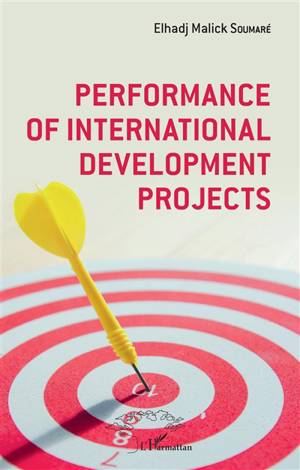
- Retrait gratuit dans votre magasin Club
- 7.000.000 titres dans notre catalogue
- Payer en toute sécurité
- Toujours un magasin près de chez vous
- Retrait gratuit dans votre magasin Club
- 7.000.000 titres dans notre catalogue
- Payer en toute sécurité
- Toujours un magasin près de chez vous
Description
The quest for performance has long been a concern of the public and private sector in developing countries, including Senegal. Today the fundamental indicators (turnover, profits, disbursement rate, etc.) have become insufficient in terms of performance evaluation, and it is therefore appropriate to suggest models for performance evaluation in order to allow projects development agencies, executing agencies and companies to guarantee their sustainability, and to ensure their sustainable development. In many developing countries, however, the expertise in project performance management is limited, which can have the effect of compromising the success of projects or preventing them from reaching their full potential.
It is with the aim of making a contribution to the resolution of these issues that this book is to proceed to the analysis of the performance of the international development projects funded by the Multilateral Development Banks (MDB) and executed by the Executing Agencies. Among the performance evaluation models, in particular the Economy-Efficiency-Effectiveness (EEE) model, the Inputs-Outputs-Outcomes model, the Balanced Scorecard, the systemic model, the Morin model, Guindon and Bouliane and the World Bank model ; we have chosen the systemic model in this study. Through an example of a project and an executing agency, an accessible and intelligible language, the author addresses the results obtained from the application of the systemic model with the variables explained (Quality, Cost, Deadline) and explanatory (Planning, Organization and Implementation) as well as the related indicators. An important part of the work is devoted to the analysis of project performance and will highlight the importance of performance in the competitiveness and profitability of organizations in an environment that has become increasingly competitive.
Spécifications
Parties prenantes
- Auteur(s) :
- Editeur:
Contenu
- Nombre de pages :
- 212
- Langue:
- Anglais
Caractéristiques
- EAN:
- 9782343214207
- Date de parution :
- 28-10-20
- Format:
- Livre broché
- Dimensions :
- 160 mm x 240 mm
- Poids :
- 358 g







